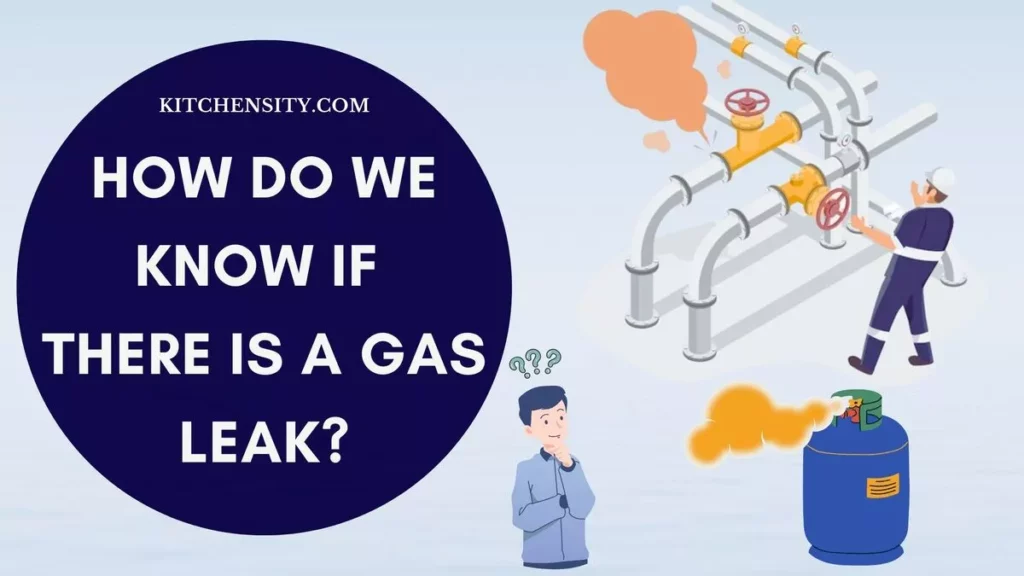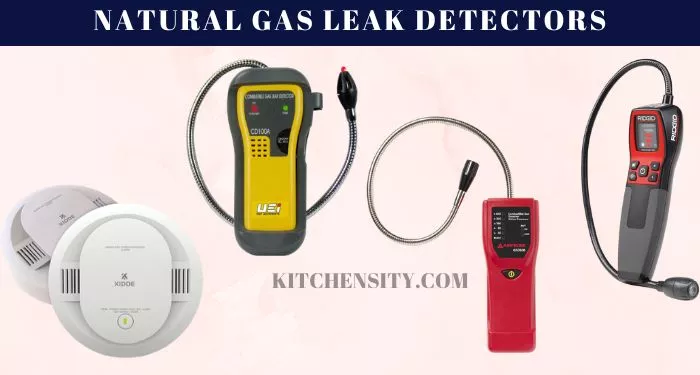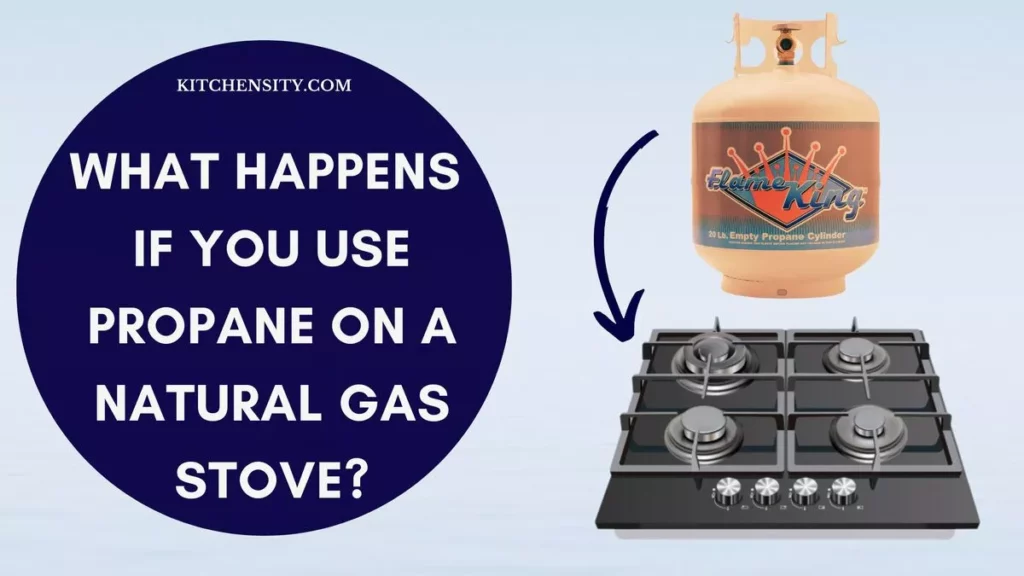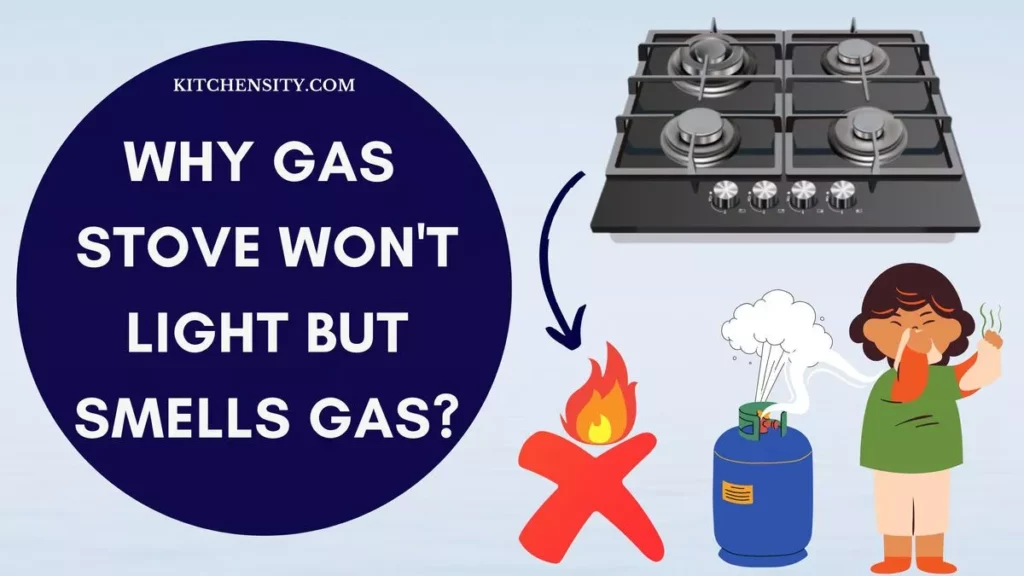Hey there! Ever wondered about the sneaky signs of a gas leak?
It’s essential to know what to look out for because your safety and the safety of your loved ones depend on it. Picture this: you’re at home, and suddenly, you catch a whiff of something strange, a bit like rotten eggs. Or maybe you’ve noticed odd things happening around your gas appliances, and you’re not sure what to make of it.
Don’t worry; we’ve got your back! In this guide, we’re going to break down the signs of a gas leak, empowering you to recognize them and take swift action if needed.
So, let’s dive in and make sure you’re well-prepared to handle any gas-related situations that come your way!
Table of Contents
- 1 How Do We Know If There Is A Gas Leak?
- 2 How To Check For Gas Leaks In The House?
- 3 How To Check For Gas Leak With Soapy Water?
- 4 Slow Gas Leak Symptoms
- 5 Physical Symptoms Of Natural Gas Poisoning
- 6 Natural Gas Leak Detector
- 7 Can A Gas Leak Kill You In Your Sleep?
- 8 Who To Call For A Gas Leak In The House?
- 9 How Do I Know If I’m Smelling A Gas Leak?
- 10 Can A Gas Leak Go Unnoticed?
- 11 Is A Faint Smell Of Gas Normal?
- 12 Can We Check For A Gas Leak With A Lighter?
- 13 Final Thoughts: How Do We Know If There Is A Gas Leak?
- 14 Frequently Asked Questions (FAQs)
How Do We Know If There Is A Gas Leak?
If you suspect a gas leak, trust your senses. The distinctive odor of rotten eggs, hissing sounds near gas lines, or physical symptoms like headaches and nausea could be signs. If you notice any of these, evacuate immediately, avoid using electronic devices, and contact emergency services and your gas provider for professional assistance.

Also Read – Can Gas Stoves Explode?
How To Check For Gas Leaks In The House?
Knowing how to check for gas leaks in your house is crucial for preventing accidents and maintaining a secure living environment. Let’s take some steps to identify and address possible gas leaks in your home.
- Step 1: Trust Your Sense Of Smell: The distinct smell of rotten eggs is deliberately added to natural gas, making it easily detectable. If you catch a whiff of this unpleasant odor, it’s a strong indication of a gas leak. Stay alert, and if you notice this smell, take immediate action.
- Step 2: Listen Carefully: Gas leaks can sometimes produce a hissing or whistling sound. Pay close attention to any unusual noises near gas appliances, the gas meter, or gas lines. Even a subtle sound could be a sign of a leak, so trust your ears and investigate any suspicious sounds promptly.
- Step 3: Look For Physical Signs: Inspect your surroundings for physical indicators of a gas leak. Dead or dying plants near gas lines, excessive condensation on windows, or bubbles in water puddles may suggest a gas leak. Keep an eye out for these signs, as they can help you pinpoint the source of the issue.
- Step 4: Check Gas Appliances: Regularly inspect your gas-powered appliances for any irregularities. Look for discolored or scorched areas near appliances, as this might indicate a leak. Additionally, if the pilot light on your stove or water heater frequently goes out, it could signify a problem. Address these issues promptly to prevent potential leaks.
- Step 5: Use A Gas Leak Detector: Invest in a gas leak detector, which is a handy device designed to alert you if it detects even the smallest traces of gas in the air. Place these detectors near gas appliances, as well as in basements and utility rooms. Regularly test the detectors to ensure they are functioning correctly.
- Step 6: Conduct A Soapy Water Test: To check for leaks in gas pipes and connections, create a soapy water solution and apply it to the pipe fittings, valves, and connections. If you see bubbles forming, it indicates a leak. Remember, even a small bubble can signify a problem, so be thorough in your examination.
- Step 7: Act Immediately: If you confirm a gas leak using any of these methods, it’s crucial to act swiftly and responsibly. Evacuate your home immediately, leaving the doors and windows open to allow fresh air in. Do not use any electronic devices or switches, as they could create sparks. Once you are in a safe location, contact your gas provider and a professional technician to address the leak.
Also Read – Gas Stove Leaking Gas From Burner: What To Do?
How To Check For Gas Leak With Soapy Water?
Using soapy water is a simple and effective method to identify gas leaks in pipes, fittings, valves, and connections. Here’s how you can do it:
- Prepare The Soapy Water Solution:
- Mix a small amount of dish soap with water in a spray bottle or a bowl.
- Shake or stir the solution to create a soapy mixture.
- Turn On The Gas: Ensure the gas supply is turned on, so you can pressurize the lines for testing.
- Apply The Soapy Water: Using a brush or a spray bottle, apply the soapy water solution to the areas you suspect might be leaking. This includes joints, valves, and connections in gas pipes and appliances.
- Observe For Bubbles:
- Watch closely for any bubbles forming on the surface of the soapy water. If there is a gas leak, the escaping gas will cause the soapy water to bubble.
- Even tiny bubbles are an indication of a leak, so inspect carefully.
- Inspect Thoroughly:
- Pay special attention to areas where pipes and connections meet, as well as around valves and fittings.
- Check all sides of the connections, including the top and bottom, as leaks can occur at any angle.
- Take Action If You Find A Leak:
- If you observe bubbles forming, it indicates a gas leak. Immediately turn off the gas supply using the shut-off valve.
- Evacuate the area and contact a professional gas technician to assess and repair the leak. Do not attempt to fix it yourself, as gas-related issues require expertise and proper tools.
Remember, safety is paramount when dealing with gas leaks. Always exercise caution, and if you are unsure or uncomfortable handling the situation, seek assistance from a qualified professional.
Also Read – My Gas Stove Making Noise When Off: Why?
Slow Gas Leak Symptoms
Detecting a slow gas leak is crucial for ensuring the safety of your home and everyone inside. While natural gas is odorless and colorless, gas companies add a distinctive odor (often described as rotten eggs) to make leaks detectable. However, in the case of a slow gas leak, the smell might not be as apparent. Here are the symptoms and signs to be aware of when it comes to slow gas leaks:
- Unexplained Physical Symptoms:
- Headaches: Persistent or recurrent headaches, especially when indoors, might be a sign of low-level gas exposure.
- Nausea: Feeling nauseous or dizzy without any apparent cause could indicate gas exposure.
- Fatigue: Constant tiredness or lethargy can be a symptom of prolonged gas inhalation.
- Respiratory Issues:
- Shortness Of Breath: Difficulty in breathing or shortness of breath, especially indoors, might be linked to a slow gas leak.
- Chest Pain: Chest discomfort or pain, particularly when you’re at home, could be a warning sign.
- Changes In Plants And Pets:
- Wilting Plants: Healthy Indoor plants suddenly wilting and deteriorating without any apparent reason might signal a gas leak affecting their oxygen supply.
- Unusual Pet Behavior: Pets becoming unusually lethargic or sick without any discernible cause could indicate a gas leak affecting their health.
- Soot Or Discoloration:
- Soot Stains: Black soot around gas appliances, particularly on walls or ceilings, indicates incomplete combustion and potential gas leakage.
- Discolored Flames: Gas appliances producing yellow or orange flames instead of blue could signify a gas leak or improper combustion.
- Increased Gas Bills: If your gas bills are unexpectedly high despite regular usage patterns, it could imply a slow leak leading to wastage.
- Musty Odors: Musty or earthy odors in the house, especially near gas appliances, might suggest a slow leak affecting indoor air quality.
- Deterioration Of Health Over Time: Chronic exposure to low levels of gas leaks can lead to serious health problems over time, including respiratory disorders and organ damage.
Also Read – Are Natural Gas And Propane Interchangeable?
If you notice any of these symptoms or suspect a slow gas leak, it’s crucial to act promptly:
- Ventilate: Open windows and doors to allow fresh air to circulate and disperse the gas.
- Evacuate: Leave the premises immediately, taking pets with you if possible.
- Avoid Flames and Sparks: Do not use any electrical switches, appliances, or open flames, as they can ignite the gas.
- Contact Professionals: Call your gas company’s emergency line and a licensed technician to assess and repair the leak.
Regular maintenance, awareness of these symptoms, and swift action are essential in safeguarding your home and loved ones from the dangers of a slow gas leak.
Also Read – How To Convert A Natural Gas Stove To Propane?
Physical Symptoms Of Natural Gas Poisoning
Natural gas poisoning can occur when individuals are exposed to high levels of natural gas (methane) in enclosed or poorly ventilated spaces. The symptoms of natural gas poisoning can vary depending on the severity of exposure, but they generally result from the displacement of oxygen in the air, leading to oxygen deprivation and the inhalation of harmful gases. Here are the physical symptoms associated with natural gas poisoning:
- Headaches: One of the most common symptoms of natural gas poisoning is persistent headaches. This occurs due to the reduced oxygen levels in the bloodstream, leading to inadequate oxygen supply to the brain.
- Dizziness: Exposure to natural gas can cause dizziness, lightheadedness, and a feeling of unsteadiness. These symptoms occur because the brain is not receiving enough oxygen, affecting balance and coordination.
- Nausea And Vomiting: Inhaling natural gas can irritate the stomach lining, leading to feelings of nausea. Prolonged exposure may result in vomiting and a general sense of gastrointestinal discomfort.
- Difficulty Breathing: Breathing difficulties, including shortness of breath and rapid breathing, can occur as a result of oxygen depletion in the air. Individuals may feel like they cannot catch their breath even in well-ventilated areas.
- Chest Pain: Natural gas exposure can lead to chest pain or discomfort. This symptom is particularly concerning, as it may indicate a lack of oxygen reaching the heart muscle, potentially causing cardiac issues.
- Fatigue: Oxygen deprivation caused by natural gas poisoning can lead to extreme fatigue and weakness. Individuals may feel unusually tired, even after periods of rest.
- Confusion: Lack of oxygen can affect cognitive functions, leading to confusion, disorientation, and difficulty concentrating or making decisions.
- Loss Of Consciousness: In severe cases of natural gas poisoning, individuals may lose consciousness. This is a critical emergency and requires immediate medical attention.
Also Read – Why Is My Gas Stove Not Clicking?
It’s important to note that the symptoms of natural gas poisoning can be subtle, especially in cases of low-level exposure over an extended period. If you suspect natural gas poisoning, it’s crucial to take immediate action:
- Ventilate: If it is safe to do so, ventilate the area by opening windows and doors to allow fresh air to circulate and disperse the gas.
- Evacuate: Leave the premises immediately, taking pets with you if possible. Move to a safe location with fresh air.
- Avoid Flames and Sparks: Do not use any electrical switches, appliances, or open flames, as they can ignite the gas.
- Seek Medical Help: Call emergency services or visit the nearest hospital to receive medical attention. Even if symptoms seem mild, it’s essential to get evaluated by healthcare professionals.
Prevention, regular inspection of gas appliances, and immediate response to any suspicion of a gas leak are key to avoiding natural gas poisoning and ensuring the safety of occupants in a home or enclosed space.
Also Read – Orange Flame On The Gas Stove: Causes & Fixes
Natural Gas Leak Detector
A natural gas leak detector is a device that detects the presence of natural gas leaks. Natural gas is a flammable gas that can cause explosions if it leaks into a confined space. Natural gas leaks can also cause carbon monoxide poisoning, which is a deadly gas.
There are two types of natural gas leak detectors: portable and fixed.
Portable detectors are handheld devices that can be used to detect leaks around the home. Fixed detectors are mounted on the wall and are connected to an alarm system.
Natural gas leak detectors work by detecting the presence of methane, the main component of natural gas. When methane is detected, the detector will sound an alarm. Some detectors also have a visual alarm, such as a flashing light.
It is important to have a natural gas leak detector in your home, especially if you have gas appliances. You should test your detector every month to make sure it is working properly. If your detector sounds an alarm, you should evacuate your home immediately and call the fire department.
Also Read – How To Fix A Yellow Flame On A Gas Stove?
Here are some of the best natural gas leak detectors on the market:

- Best overall (UEi Combustible Gas Leak Detector): The UEi Combustible Gas Leak Detector is a great all-around option that is accurate, easy to use and has a long gooseneck for reaching hard-to-reach spots. It also has an audible and visual alarm to let you know if a leak is detected.
- Best For Measuring Gas Levels (Amprobe Gas Leak Detector): The Amprobe Gas Leak Detector is a good choice if you need to measure the level of gas in an area. It has a digital display that shows the gas level in ppm (parts per million). It also has an audible and visual alarm to let you know if a leak is detected.
- Best For Pinpointing Leaks (RIDGID CD-100 Gas Detector): The RIDGID CD-100 Micro Combustible Gas Handheld Diagnostic Detector is a great choice for pinpointing the exact location of a leak. It has a sensor that detects gas from up to 10 feet away and can pinpoint the leak to within 1 inch. It also has an audible and visual alarm to let you know if a leak is detected.
- Best For Multiple Gases (Kidde Smoke & Carbon Monoxide Detector): The Kidde Smoke & Carbon Monoxide Detector offers comprehensive 2-in-1 protection. With self-testing components, easy installation, and a combination of photoelectric and electrochemical sensors, it provides reliable alerts for smoke, fire, and poisonous CO gas. Battery-operated and UL Certified, it comes with a 10-year limited warranty, ensuring long-lasting safety and peace of mind for your home.
Also Read – Why Gas Stove Won’t Light But Smells Gas?
Can A Gas Leak Kill You In Your Sleep?
Yes, a gas leak can be fatal, even when you are asleep. Gas leaks, particularly those involving natural gas, can lead to a buildup of highly flammable and toxic gases, such as methane, which can displace oxygen in the air.
When there is insufficient oxygen to breathe, it can lead to a condition known as asphyxiation. This lack of oxygen can occur silently and without any warning, making it especially dangerous, particularly when people are sleeping and unaware of the danger.
Certain gases, such as carbon monoxide (CO), which can also leak from faulty gas appliances, are odorless and colorless. Carbon monoxide poisoning can occur without any noticeable smell or taste, making it difficult to detect.
Breathing in carbon monoxide can lead to poisoning, causing symptoms such as dizziness, headaches, confusion, and, in severe cases, unconsciousness and death. This gas is often referred to as the “silent killer” because it can incapacitate victims without any warning.
Also Read – What Happens If You Use Propane On A Natural Gas Stove?
In the case of a gas leak while sleeping:
- Lack of Awareness: People are unaware of the leak and the danger it poses, especially when they are asleep and unable to smell the gas.
- Silent and Fast-Acting: Gas leaks can occur quietly and rapidly, displacing oxygen and filling the room with hazardous gases.
- Unconsciousness: As people breathe in the toxic gases, they may lose consciousness, making it impossible for them to react or escape the danger.
- Fatal Consequences: Without intervention or detection, a gas leak, especially during sleep, can lead to asphyxiation or carbon monoxide poisoning, which can be fatal.
To prevent such tragedies, it is crucial to install carbon monoxide detectors in homes, especially in areas where gas appliances are used. These detectors can alert occupants if there are elevated levels of carbon monoxide in the air, allowing them to evacuate and seek medical help before it’s too late.
Also Read – Are Propane Stoves Safe Indoors?
Who To Call For A Gas Leak In The House?
If you suspect a gas leak in your house, it is crucial to act quickly and responsibly. Here are the steps to follow and the people to contact when you suspect a gas leak:
- Evacuate Immediately: If you smell gas or suspect a leak, evacuate your house immediately. Do not use any electrical appliances, switches, or flames, including lights and matches, as they can cause sparks and ignite the gas.
- Call Emergency Services: In the United States, dial 911 or your local emergency number to report the gas leak. Emergency services can dispatch the appropriate personnel to handle the situation.
- Contact Your Gas Provider: Call your gas company’s emergency hotline. Gas providers usually have 24/7 emergency response lines specifically for reporting gas leaks. They will send a technician to assess and address the situation.
- Do Not Return Until Cleared: Do not re-enter your home until it has been declared safe by the gas company or emergency responders. They will conduct thorough checks to ensure the gas leak has been repaired and the environment is safe for habitation.
- Seek Medical Attention If Necessary: If you or anyone in your household experiences symptoms such as dizziness, nausea, difficulty breathing, or chest pain, seek medical attention immediately. Inform healthcare providers about the potential gas exposure.
Remember, gas leaks can be extremely dangerous, and it’s essential to prioritize your safety and the safety of others. Acting swiftly and contacting the appropriate authorities can prevent accidents and ensure a prompt and effective response to the situation.
Also Read – Can Electric Stoves Explode?
How Do I Know If I’m Smelling A Gas Leak?
Recognizing the smell of a gas leak is crucial for ensuring your safety. Natural gas is odorless, but gas companies add a distinctive odorant called mercaptan, which gives it a rotten egg or sulfur-like smell. This odor is deliberately added to make gas leaks easily detectable. Here’s how you can identify if you’re smelling a gas leak:
- Distinctive Odor: If you detect a strong, unpleasant odor similar to rotten eggs or sulfur, it could be a sign of a gas leak. Trust your sense of smell; if something doesn’t seem right, take immediate action.
- Unusual Smells Indoors: If you suddenly notice a distinct gas odor indoors, especially in areas where gas appliances are located, it’s a cause for concern. Pay attention to any changes in smell, especially if you’ve not experienced it before.
- Odor Outdoors: Gas leaks can sometimes be detected outdoors, especially if they are large or if the gas is escaping from underground pipes. If you notice the characteristic smell of gas outdoors, it’s important to report it to the gas company.
- Associating Symptoms: If you or others in your household are experiencing symptoms such as dizziness, headaches, or nausea, and you smell gas, it might indicate a leak. Gas exposure can cause these symptoms, and the presence of the odor strengthens the possibility of a leak.
- Animals’ Behavior: Pay attention to the behavior of pets. If animals act unusually restless, agitated, or sick without an apparent reason, it could indicate the presence of gas.
- Hissing Or Whistling Sounds: Sometimes, a gas leak can produce hissing or whistling sounds near the source. If you hear such sounds, investigate further and, if safe, evacuate the area.
- Visual Signs: Look for signs of a gas leak such as dead or dying plants in the vicinity of gas lines. Gas escaping from underground pipes can affect vegetation.
- Feelings Of Discomfort: Trust your physical sensations. If you suddenly feel uncomfortable, nauseous, or experience headaches while indoors, and you notice the gas smell, it’s a cause for concern.
Also Read – My Electric Stove Burner Stays On High! Why?
Can A Gas Leak Go Unnoticed?
Yes, a gas leak can go unnoticed, especially if it is a slow or minor leak. There are several reasons why a gas leak might not be immediately detected:
- Odor Fade: While gas companies add an odorant (usually mercaptan) to natural gas to make it detectable, the odor can fade over time, especially in older gas lines. If the odorant dissipates, the gas leak becomes odorless and harder to detect by smell alone.
- Low Concentrations: Small gas leaks may not produce enough gas to create a noticeable smell. Even though the leak is present, the concentration of gas in the air might be too low for the odor to be detected.
- Ventilation: Adequate ventilation can disperse the gas, making it difficult to accumulate to levels where it becomes noticeable. Well-ventilated areas can dilute the gas, preventing it from reaching a concentration that triggers the distinctive odor.
- Location Of The Leak: If the gas leak occurs in a remote or less frequented area of the house, such as the basement or attic, it might go unnoticed for an extended period. People may not spend much time in these areas, reducing the chances of detecting the leak.
- Ignition Sources: In some cases, gas leaks might not cause immediate harm because there is no ignition source present. Gas needs an open flame, spark, or other ignition source to catch fire. Without these, the gas may disperse harmlessly, allowing the leak to go unnoticed.
- Slow Leaks: Slow gas leaks release gas at a gradual rate, which might not cause an immediately noticeable change in the environment. Over time, even slow leaks can pose significant risks, especially if they continue unnoticed.
Given the potential dangers associated with gas leaks, it is essential to take preventive measures, such as installing gas detectors and conducting regular inspections of gas appliances and pipelines.
Gas detectors can sense even low levels of gas concentration and provide an early warning, ensuring timely intervention and preventing potential accidents or health hazards.
Also Read – Do Electric Stoves Use Gas?
Is A Faint Smell Of Gas Normal?
No, a faint smell of gas is not normal. Even a faint odor of gas should be taken seriously and investigated immediately. Natural gas is naturally odorless; however, gas companies add a distinctive odorant (usually mercaptan) to make it easily detectable. This added smell, often described as rotten eggs or sulfur-like, is designed to alert people to the presence of gas leaks.
If you notice any smell of gas, regardless of how faint it may be, it could indicate a potential gas leak. Gas leaks, even small ones, can be hazardous, as they can lead to fires, explosions, or health issues due to gas exposure.
Also Read – Are Electric Stove Burners Interchangeable?
Can We Check For A Gas Leak With A Lighter?
No, you should never check for a gas leak with a lighter or any open flame. Using a lighter or matches to check for a gas leak is extremely dangerous and can lead to a fire or explosion.
Gas leaks are highly flammable, and even a small spark from a lighter can ignite the gas, causing a significant hazard. It’s essential to prioritize safety when dealing with gas-related concerns. If you suspect a gas leak, follow these steps instead:
- Evacuate: Leave the area immediately. If you are inside, go outside to a safe location.
- Do Not Use Electronic Devices: Avoid using phones, switches, or any electronic devices, as they could create sparks that might ignite the gas.
- Do Not Use Open Flames: Do not use lighters, matches, candles, or any open flames to check for a gas leak. Even a small flame can cause a disaster.
- Ventilate: If it is safe to do so, open windows and doors to allow fresh air to circulate and help disperse the gas.
- Contact Emergency Services: Call your local gas emergency hotline or emergency services to report the gas leak. They will send professionals to assess the situation and address the potential leak.
- Wait Outside: Do not re-enter the premises until it has been declared safe by the gas company or emergency responders. They will conduct thorough checks to ensure the gas leak has been repaired and the environment is safe for habitation.
Also Read – Does A Gas Stove Need A Dedicated Circuit?
Final Thoughts: How Do We Know If There Is A Gas Leak?
In the face of a possible gas leak, your safety comes first. If you ever catch a whiff of that distinctive rotten egg smell or notice any signs like hissing sounds, dead plants, or strange physical symptoms, don’t ignore them. Trust your instincts and act swiftly.
Remember, if you suspect a gas leak, leave your home immediately. Don’t use your phone, switches, or any open flames. Get to a safe spot and call for help. By being aware and taking quick action, you’re ensuring the safety of yourself and those around you.
Stay alert, trust your senses, and don’t hesitate to reach out for assistance if you ever suspect a gas leak. Your vigilance can make all the difference in keeping your home secure and your loved ones protected.
Also Read – Butane Vs Propane Stove
Frequently Asked Questions (FAQs)
-
Can A Gas Leak Occur Even If I Don’t Smell Anything Unusual?
Yes, gas leaks can happen without a noticeable odor. It’s essential to be aware of other signs like hissing sounds, dead plants, or physical symptoms.
-
How Often Should I Have My Gas Appliances Inspected?
It’s recommended to have gas appliances inspected annually by a qualified technician to ensure their proper functioning and detect potential leaks.
-
Can I Use My Phone Or Light A Match If I Suspect A Gas Leak?
No, avoid using any electronic devices, matches, or open flames if you suspect a gas leak, as they can ignite the gas. Evacuate the area immediately and call for professional help.
-
What Should I Do If I Smell Gas Outside My House?
If you smell gas outdoors, do not ignore it. Call your gas company immediately to report the issue, as it could indicate a leak in an underground pipe.
-
How Can I Prevent Gas Leaks In My Home?
Regularly maintain your gas appliances, conduct inspections, and be vigilant about any signs of leaks. Additionally, install a gas leak detector for early detection and peace of mind.
🔧 Stove Expert | 🔥 Gas Guru | 🏠 DIY Enthusiast | 🎨 Painter Extraordinaire
John Davis is your go-to source for all things stoves, from expert repairs to maintenance tips. With a deep understanding of gas systems, including natural and propane, John ensures your kitchen stays cooking safely. His passion for DIY home and kitchen projects shines through his stunning paint transformations. Trust John to bring warmth and functionality to your home, one stove at a time.







Thanks for the suggestion to consult a professional whenever you see signs of gas leaks around your space. I like how these experts can help fix the issue before they pose a safety risk around your home. I will keep this in mind if I end up needing this in the future once I live in my own space.
Dear Zachary, I’m glad you found the article helpful. Safety should always come first when it comes to gas leaks. Remembering to consult a professional is key. If you have any questions in the future, feel free to reach out. Best wishes as you settle into your own space.
It’s nice that you mentioned how you should trust your senses if you suspect a gas leak. I smelled something strange in our kitchen earlier and I think it is due to a gas leak. We need to make sure and also address this, so we should contact a natural gas leak expert immediately.
Dear Luke, thank you for your message. I’m glad you found the article helpful. It’s important to take immediate action if you suspect a gas leak. Contacting a natural gas leak expert is the right decision. Stay safe, and I hope the issue gets resolved quickly.